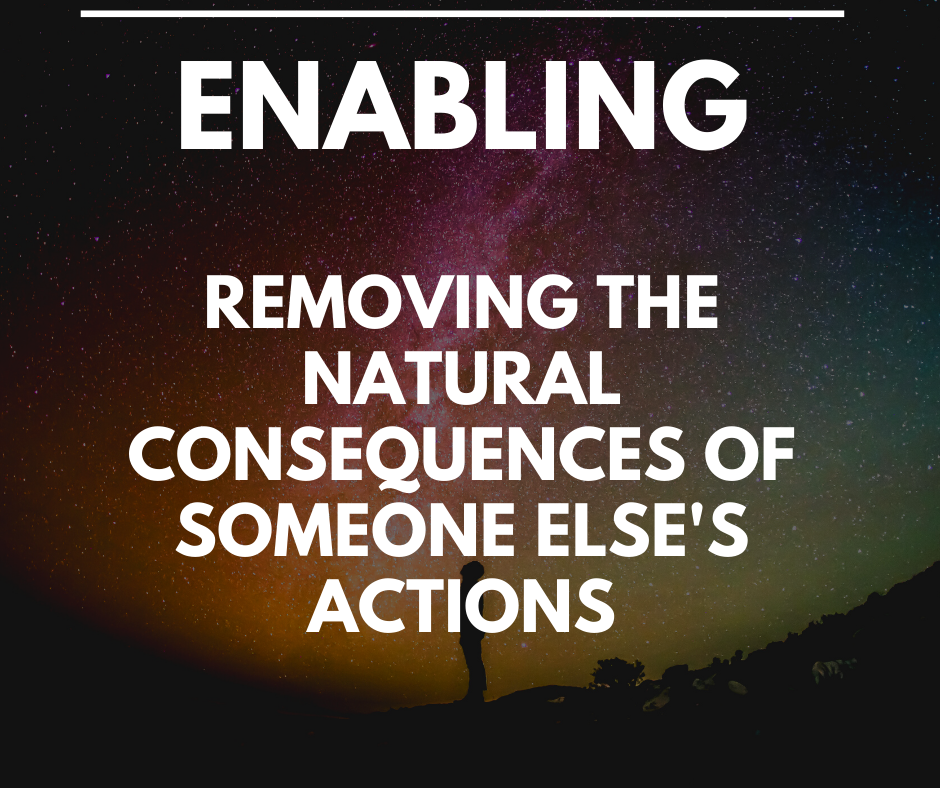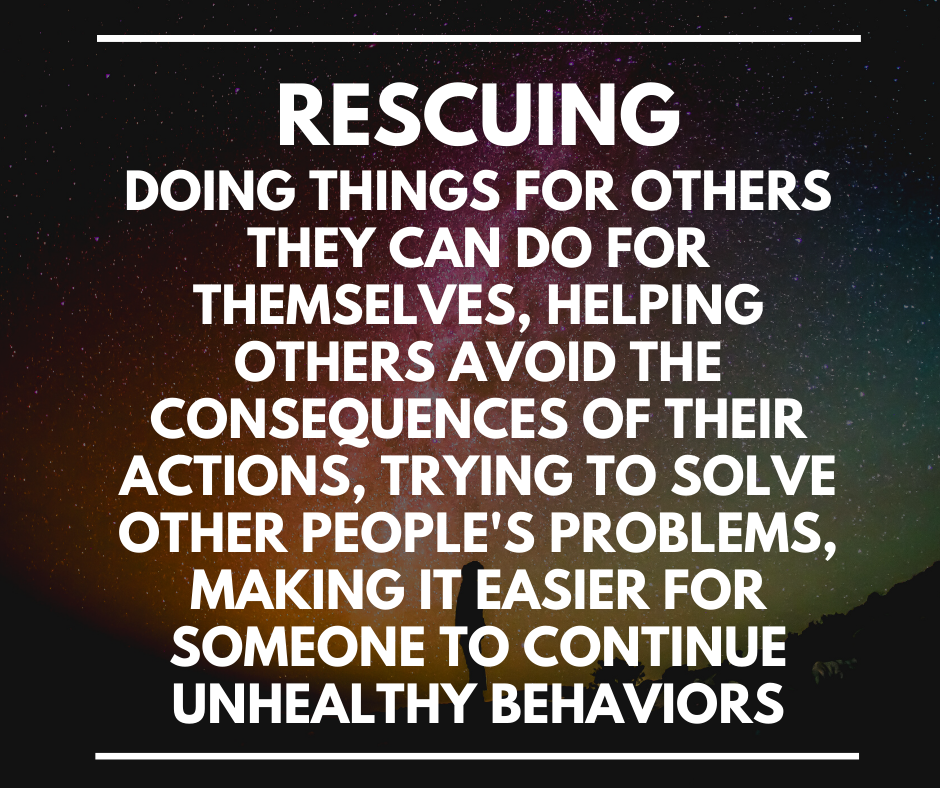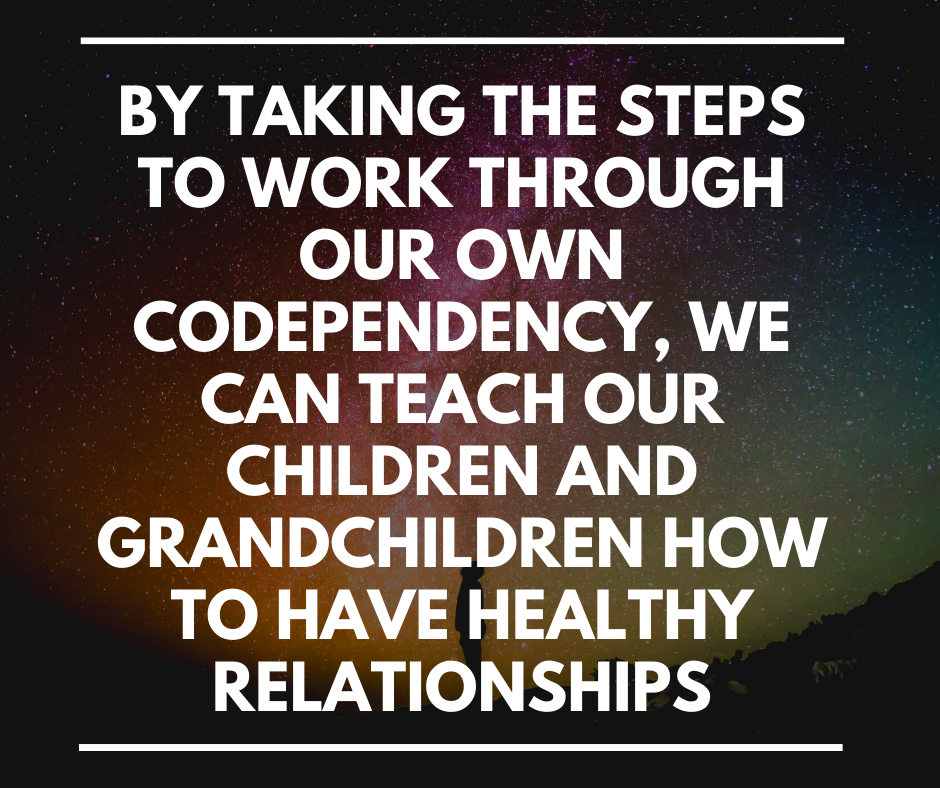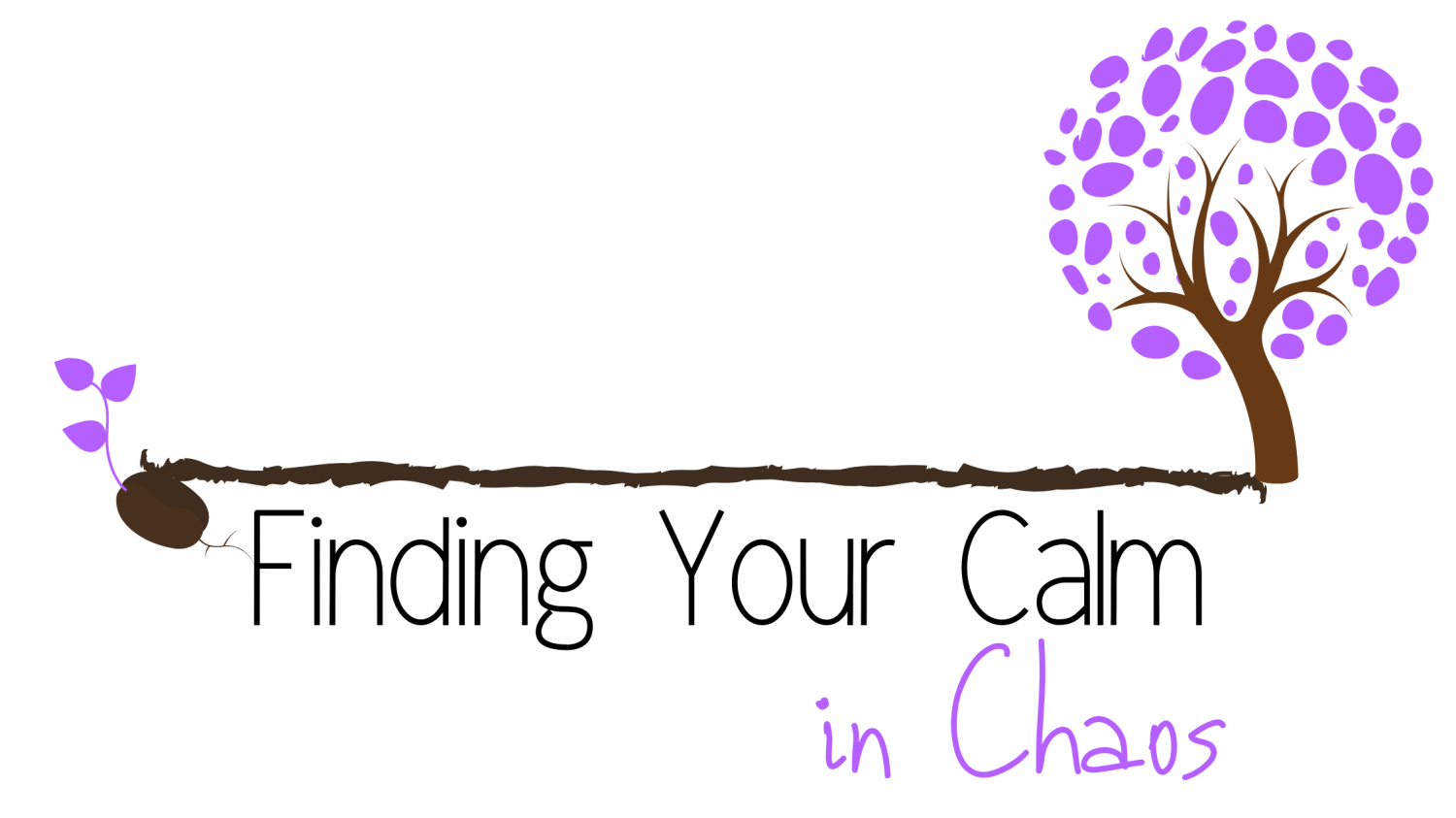
As a young girl in my late teens, an event happened to me that changed the course of my future. The situation was not ideal, but I rolled my sleeves up and hit it head-on. I made no excuses; I blamed no one, took full responsibility, and charged forward. Twenty-five years later, this incident in my past would catch up with me, as the past often does. I would now find myself filled with anxiety, second-guessing my entire life, seeking validation from people who did not matter, looking for approval, and giving apologies that were not mine to give. What had happened to me? Over the course of those 25 years, without realizing it, I had become codependent.
Upon hearing the word codependent, most of us envision a wife bailing her husband out of jail for drunk driving or a teenager making excuses for his mother’s drunken behavior at a family reunion. Yes, alcohol, drugs, and other addictions often lead to family members becoming codependent. However, did you know that many codependents do not come from alcoholic families, nor do they live with an addict? The first time someone asked me if I could be codependent, I said absolutely not! How could I be? My parents did not drink, my husband is not an alcoholic, nor were any of my children! That was absurd! It would take me another 4 years to recognize the signs, admit that I was codependent and decide that I had some serious work to do to change my relationships and my future.

What is codependency?
When I searched for information on codependency what I found was confusing and misleading. This is the definition of codependency according to Merriam-Webster
Dictionary
: a psychological condition or a relationship in which a person is controlled or manipulated by another who is affected with a pathological condition (such as an addiction to alcohol or heroin)
Although this definition is true, it does a great disservice too many of us that do not fall into the category of loving someone with an addiction. We have to search deep to find definitions of Codependency that explain what this behavioral pattern is and how we can recognize it within ourselves. The main codependent traits are rescuing and enabling other people that have addictions, are immature, are irresponsible, or have mental illness. However, we can become codependent with more dominant types of personalities, people we want to protect and those that play the victim. Many codependents are people pleasers. People pleasers have a hard time setting boundaries and saying no, many also seek external validation and some have low self-confidence. Codependents are notorious advice givers who feel rejected when their advice goes unheeded. This may come across as nagging or controlling behavior. Codependents can become “obsessed” with fixing, helping and solving their loved one’s problems. They may even feel responsible for other people’s failures and shortcomings.

Another common misconception about codependency is that all Codependents rely on others for money, housing and to care for their basic needs. This is the furthest from the truth. I have had the pleasure of meeting many recovering codependents that have successful careers, own their own homes, and have long-standing relationships.

Melody Beattie, author of “Codependent No More” explains it as:
“A codependent person is one who has let another person affect him or her and who is obsessed with that person’s behavior.” (Beattie, M 1992) This explains it a little more! If we keep looking even deeper, we discover that many times codependency can be behavior that is modeled or taught.
How do we become codependent?
Codependency is NOT a psychological disorder. It is a relationship dynamic that can be corrected. We develop codependency characteristics for survival. Codependency is a tricky behavioral pattern that can be a trait you develop in childhood, or as I did, as an adult. We may live chaotic lives, survive traumatic situations, be under a great deal of stress, live with abusers, addicts or someone else’s mental illness. Some of us may have careers where we are caretakers. Codependents may have never learned, or we forgot how to use healthy coping skills. It is also possible to be codependent in one relationship, but not in all of our relationships.

Did we have a parent or grandparent that had these traits? Did we observe an alcoholic, drug, or a gambling issue in a parent, grandparent or family member? Were we raised in a home where one parent had codependent traits and we believed that this behavior was normal? Did our mother or father obsess over someone else’s problems? Were we taught to put our feelings last by a controlling parent or sibling? Did our church leaders or sports coach teach us we were acting selfish if we did not put others before ourselves? Did we grow up in a home where we needed survival skills to get through drama, chaos or continuous hurt? Are we codependent because we do not feel loved or do we feel unlovable? Do we people please and try to control other’s lives because our lives feel uncontrollable? There are thousands of reasons that cause us to become codependent. Although some are more traumatic, each one has led us to an unsatisfied life and left us feeling as though our lives are no longer manageable.
I have researched codependency for over 6 years. During my research, I asked myself if codependency could be a cultural thing? Did this run in certain cultural backgrounds or ethnicities? Was it more prevalent in certain areas of our country than in others? After months of research, I discovered that codependency seemed to be a growing problem in most first world countries. In my online groups, we have members from all over the world. Even coming to American online ZOOM meetings from faraway places such as Europe, Australia, and Asia. In the United States, it seems as if the Midwest, the South and West Coast are active areas for codependents, but these behavioral traits are not exclusive to these localities. After tons of research, I discovered that Codependency is a worldwide phenomenon affecting people from all cultures, backgrounds, and upbringings.

Next, in my research, I wanted to see if religious affiliations had anything to do with codependency. Although I found that many religious teachings promote codependent traits, codependency did not seem affiliated with any one singular religious teaching but stretched across the board from atheists to devout Catholics to Islam.
From here, I looked at common practices in America regarding raising children and I found some intriguing things. We, as parents, want to teach our children to be compassionate, empathic, and understanding. These are noble traits to teach our little ones. But are we missing a few key points? Are we teaching them to become codependent? Look at the following example:
Three-year-old Little Johnny is playing at the playground. He has brought his toy trucks to play in the sandbox and is very excited. After he arrives and has settled into the sandbox, his friend Sammy arrives. Sammy cries because he wants Johnny’s toys, and he wants them NOW. Both children’s mothers try to intervene. Johnny is told he must share, doesn’t he want to be a nice little boy? The problem here is Sammy doesn’t want to share. He wants to play with Johnny’s toys and he feels angry that Johnny is not giving him what he wants. Johnny is told to “find something else to do,” while Sammy gets his turn. Johnny does what he is told and never has the chance to explain that he prepared his toys for coming to the park today, and he was looking forward to playing in the sandbox. He feels hurt and confused, and this is the starting point of Johnny learning to “stuff” his feelings for the sake of the other children. Both mother’s have just given little Johnny a lesson in codependency.
Let’s look at another example regarding raising children and codependency:
Susan is a high school student that has played on the soccer team for 9 years. She has worked hard to sharpen her skills and make the Varsity team. She has kept up with all her responsibilities from school work to church groups to her babysitting jobs on Friday night. At the start of her senior year, her varsity coach asks her to volunteer to take over a newly formed soccer team for 7-9-year-olds. Susan realizes that she is already over-committed but feels pressure by the coach, her parents, and the parents of the children on the newly formed team to “give back to the community, what others have done for her.” After she has exhausted her protests and explained that the responsibilities may overwhelm her and explained that she wants to enjoy her senior year, she eventually gives in and does the volunteer position. Halfway through the season, Susan feels burned out. She realizes that she cannot let her team of 7- 9 years olds down and quits the varsity team. Her coach, family and friends support this decision. They have all given her a lesson in codependency. She has put her needs and wants last to satisfy the needs and wants of others.
It is important that we get our codependency traits under control so we can teach our children how to set healthy boundaries and to show them it is okay to say no. By taking the steps to work through our own codependency, we can teach our children and grandchildren how to have healthy relationships and not to become victims of other people’s inappropriate behavior and choices.

How do recognize codependency?
Almost everyone has some codependent traits. Sometimes, we admire these people and wish we ourselves could be more like them. From the outside, these people seem kind, caring, generous, and giving. However, when we inspect a little closer, we discover that they are overwhelmed, depressed, stressed, full of anxiety, lack of boundaries and most likely, resentful.
 Do you recognize any of the following people in your life, or perhaps you can identify with one?
Do you recognize any of the following people in your life, or perhaps you can identify with one?
- A parent who becomes overly involved in their children’s lives and finds solutions to all their problems, even as they become adults
- A person at church, your place of work, or your children’s school that is constantly volunteering and always overwhelmed
- The nurse at the hospital that carries the world on her shoulders and never takes time to eat or rest
- A teacher that works 14 hours a day and buys supplies for all the children
- A spouse who coddles the other spouse and handles all of their responsibilities
- The girlfriend who runs her boyfriend’s errands and uses her lunch break to handle his responsibilities
- A parent that makes excuses for the other parent’s behavior
- The friend who responds to everyone at a moment’s notice
- A grandparent who is always writing checks to “help” a grandchild out of yet another sticky situation
- The mother and father of an adult child still living in their home because their child just “can’t seem to get it together,” or “they have a problem and relapse,” or their child has bad luck and just can’t catch a break
- A parent that runs errands for their grown children, even though they can do it themselves
- Someone who worries about other’s problems obsessively
Am I codependent?
If you are still reading this you have recognized some of these traits in yourself or in someone you love. One of the hardest things we will ever do is come to terms with the fact that we are codependent and our lives have become unmanageable. One of the most loving things we can do for ourselves is accept this and begin to problem solve a solution to gain back control, self-respect and empowerment in our lives. Look at the following 35 questions.
 Review the following questionnaire. Write down questions in which you answer YES.
Review the following questionnaire. Write down questions in which you answer YES.
Am I codependent?
- Do you have trouble identifying or communicating your feelings?
- Are you a people-pleaser?
- Do you have trouble saying NO?
- Are you overly responsible?
- Do you stay in toxic relationships or friendships, longer than you should?
- Do you have self-esteem issues or low self-confidence?
- Do you have trouble communicating your feelings or often feel “unheard?”
- Do you have trouble setting effective boundaries?
- Are you reactive to other’s moods or emotions?
- Do you sometimes take on other’s moods or emotions?
- Do you feel you “walk on eggshells” around your loved ones?
- Do you jump in to help others “solve” their problems?
- Do you feel responsible for “fixing” other people’s problems?
- Do you feel you need to control other people’s thoughts, feelings, or beliefs?
- Do you feel it necessary to jump in and control crisis situations?
- Do you often say “I am okay” when you are not?
- Do you obsess about other people’s problems?
- Do you lose sleep over other people’s problems?
- Do you secretly need other people to value or appreciate your actions?
- Do you feel “trapped” in a relationship?
- Do you search out sexual relationships with unhealthy people?
- Do you have trouble with intimacy?
- Do you fear being rejected, judged, or left in relationships?
- Do you have anxiety?
- Do you not trust your own feelings?
- Do you feel that you are always surrounded with “drama?”
- Do you sometimes become upset when someone does not take your advice?
- Do you often loan money or items to friends in need?
- Do you feel others take advantage of you?
- Do you sometimes say yes when you want to say no?
- Do you feel that your way is the best way for others to complete a job?
- Do you finish the day and realize you have not taken time for any self care?
- Do you feel resentful towards people?
- Do you have a high amount of shame or guilt?
- Do you ever feel not good enough?
If you answered yes to 5-7 questions, you most likely have codependent traits. If you answered yes to more than 7 questions you are most likely codependent.
What do I do now?
If you feel that you have codependent traits or you are a codependent, you have just made the first step to finding a path to recovery! Because codependency is not a mental illness but a pattern of behaviors, there are ways to overcome this and change your life. I will be honest with you, recovery is the hardest thing you will ever do. However, the results will change your life. Starting a path to recovery will empower you, change your relationships and lead you into a life with less chaos and more calm. The day I discovered I was codependent was one of the most empowering days of my entire life. I felt like I had been searching for a firey dragon and had finally found it and now could figure out how to slay it.
For years I had believed that if everyone else in my relationships would just change or try harder, that my life would be better. The truth was, I had to make changes before any of my relationships could change. It was a hard truth, but it left me feeling empowered. I could not find the light at the end of my tunnel until I admitted I was codependent. Just discovering gave me instant relief. I now knew there was an answer, I just had to find it.

My journey begins with a few months of internet research. Pinterest became my best friend. I started pinning and reading everything I could find on codependency and recovery. I also begin to research healthy communication. I put my recovery and my self care first. I like to compare this with being a passenger on an airplane. When you first get on an airplane, the flight attendant stands upfront and does a 5 minute safety procedure. In this lecture, she reminds us that if the oxygen masks drop, we must put them on ourselves before assisting others. Why do we need to put the mask on ourselves first? If we put the oxygen on someone else first, we may pass out because of lack of oxygen. It is imperative that we put the mask on ourselves first. Codependency recovery is the same thing. We must put the mask on ourselves first before we can assist others! This is a hard thing for a codependent to accomplish! We feel selfish, self-centered, and narcissistic at the start of this process. But we must overcome these feelings and move forward in our recovery.
Where can I find help?
There are many paths you can take from here. It’s all up to you!
- Schedule an appointment with a therapist who specializes in Codependency
- Read books on Codependency
- Read books on boundary setting
- Find a Co-dependents Anonymous, CODA, 12-step program in your area
- Purchase the CODA workbook and Blue Book and work through the program on your own or with a codependent group
- Join online groups for codependents
* I am not paid by any of the above. The information I have provided has benefited me and I feel that these are the best tools to help with codependency recovery‘
I begin sponsoring other codependents in a small online group a few months ago. The following are actual quotes from members,
“I feel like I have just woke from a deep sleep; like I am alive for the first time in my life.” She said, “I am changing in ways I never expected. For the first time in my adult life, I am beginning to feel like me.”
Another member said,
“This process has made me a better person, I now understand that my feelings are just as valid as everyone else.”
And another member quoted,
“At 54 years old, this has opened my eyes and showed me another way of looking at the world and how I fit into it.”
Discovering we are Codependent can be scary yet life changing. Recognizing you may be a codependent is the first step! Working on recovering from Codependency is one of the hardest and loving things you can do for yourself. On my journey from chaos to calm, I slayed this dragon and won. Are you ready to take the journey and slay your own dragon?
![]() What is Codependency? Codependency is a relationship dynamic where one person enables or rescues another.
What is Codependency? Codependency is a relationship dynamic where one person enables or rescues another.
- Schedule an appointment with a therapist who specializes in Codependency
- Read books on Codependency
- Read books on boundary setting
- Find a Co-dependents Anonymous, CODA, 12-step program in your area
- Purchase the CODA workbook and Blue Book and work through the program on your own or with a codependent group
- Join online groups for codependents






I stand in awe that each week I read your posts and each week I am learning things that in truth, are knocking the socks off my feet. Things I never thought of, ideas that are literally blowing my mind. THANK YOU for your hard work, and for sharing.
LikeLike